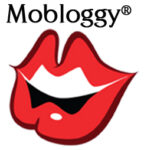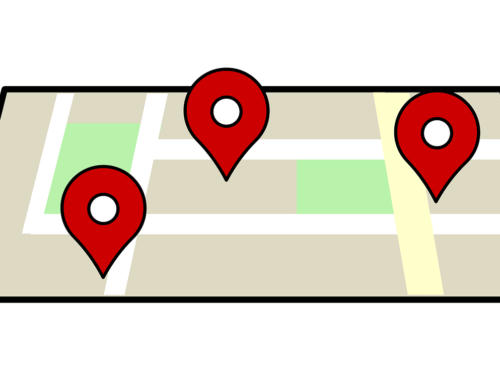Justifications Are a Big Deal and You Can Influence Them
Have you seen that we’re all playing one enormous advertising industry round of Concentration nowadays, in which we’re coordinating with all that we do to purpose? Google is playing it, SEOs are playing it, nearby SEOs are playing it…
Why?
Since Google needs its SERPs (and we need our SERPs) to stand apart as where individuals find precisely what they need. Google is coming at this objective from a few unique points, however there’s one specific hand I need to make certain to give you in on today in case you’re promoting neighborhood organizations: nearby defenses.
It’s alright if this is absolutely new to you — I’ve seen that neighborhood avocations have gone generally unremarked. Today, we’ll measure the unmistakable quality of these intriguing scraps, and tell you the best way to play a triumphant hand that can empower you to stand apart from your neighborhood SERP rivals excitingly!
What are neighborhood legitimizations?
A neighborhood legitimization is an additional piece of text Google can show on professional references in the nearby packs, nearby locaters, and Google Maps to motion toward searchers that a component of the business explicitly coordinates with their apparent expectation.
In the above model, Google is coordinating with my quest for “emphasize seats corte madera” with a featured notice that these decorations are accessible at close by stores. These warnings truly hang out in the postings and can possibly improve navigate rates on your postings.
Supports have been around since at any rate 2019, and it was previous Google staff member Joel Headley whom I originally heard offer Google’s phrasing for this posting highlight.
How regular are nearby legitimizations?
Chart showing 43% of nearby postings don’t have legitimizations.
My astute companion and associate, Dr. Peter J. Meyers, has worked effectively following the presence of a wide range of highlighted scraps in the SERPs throughout the long term. I was excited when he offered to follow nearby avocations for me with the goal that we could attempt to put a number on exactly how basic this type of literary scrap has become in the neighborhood packs.
Pete started up MozCast, which tracks 10K catchphrases day by day — half of which are nonexclusive to the US and half of which are confined to explicit urban areas the nation over. Here is the thing that he found for us in regards to work area results:
2,063 of 5,000 confined catchphrases returned a nearby pack (that is 41%)
2,018 of the 2,063 nearby packs contained the normal three postings (that is 98%)
1,175 of the 2,063 nearby packs highlighted defenses (that is 57% — goodness!)
Also, of these 1,175 nearby packs containing defenses, 32% had them on one posting, 355 had them on two of the postings, and 445 had them on every one of the three of the postings.
Pete needed to be certain we referenced that MozCast is slanted towards head terms instead of longer-tail terms, and he was most generally seeing defense types for expansive item/administration watchwords and classes. We both idea was astounding that the greater part the nearby SERPs contained avocations, most regularly on every one of the three postings in the neighborhood packs.
On the off chance that Google is managing out supports at this rich rate, nearby entrepreneurs and their advertisers should pay, and begin acting to impact these pieces however much as could reasonably be expected.
Cards on the table time.
What are the kinds of nearby supports and how might you impact them?
Playing a game of cards with creature delineations.
There’s a virtual Animal Rummy deck of neighborhood defenses in play presently, taking goal coordinating higher than ever. It’s very conceivable that I haven’t recognized every one of them, and in the event that you are aware of others, kindly notice them in the remarks. These are the seven kinds I’ve most usually seen, with notes on the best way to impact them when it’s feasible to do as such.
Audit avocations
Fledglings Farmers Market professional resource with survey legitimization.
Audit legitimizations are sourced from Google My Business surveys. Artfulness your audit procurement solicitations to provoke clients to examine explicit, longer-tail parts of what the business gives, and you could see their language excerpted like this to explicitly coordinate with the refined expectation of a searcher. I’ll make reference to here that my hunt was for “natural produce X city”, however I additionally saw Google making semantic associations between “natural produce” and “natural vegetables” that they featured from different audits.
Site legitimizations
Site legitimizations are pulled from the site connected in your GMB posting. Note that the connected URL doesn’t need to be the page that makes reference to the point highlighted in the support. In my model, the posting highlighted the site landing page, which didn’t explicitly specify “gems fixes” in the fundamental body of the page. Maybe, that phrasing was in a dropdown interface in the route menu, which at that point focuses to a page for that assistance.
That being said, you may explore different avenues regarding advancing the GMB presentation page with a term you’d particularly prefer to see featured as an avocation, and check whether Google gets on it. It’s awesome to believe that, as you have full power over your site’s substance, your on-page procedures will support your legitimization endeavors.
Posts defenses
Cresalia Jewelers professional resource with a post legitimization.
In like manner, you have full authority over your Google posts substance, and featuring longer-tail aim in what you expound on, similar to “exclusively made wedding bands”, could win you an eye-getting defense like this. Fortunately these defenses don’t need to be pulled from your latest post. I saw instances of excerpted content from posts that were longer than a month old.
Administrations avocations
YESCO Vaughn professional resource with an assistance support.
These seem, by all accounts, to be pulled directly from the Services segment of your Google My Business dashboard. I accept the Services area appeared in 2018, and if it’s accessible in the left hand route menu of your dashboard, unquestionably add however many significant administrations as you can consider to impact this sort of defense.
Menu supports
Kowalski’s Market professional reference with menu defense.
Around 2017, Google truly started increase its menu highlights in pertinent GMB dashboards. I haven’t had the option to affirm whether menu avocations stem exclusively from GMB posting menus, so be certain your menu is likewise precise on your site — and on any outsider conveyance administrations you might be utilizing — to forestall wrong data in this sort of defense.
In stock avocations
Container and Barrel professional resource with in stock defense.
In stock legitimizations seem to start from Google’s “See What’s In Store” (SWIS) program, which prompts results like this for the Crate and Barrel area in my model. Google’s SWIS work appeared in 2018, connected to their organization with retail location arrangements supplier Pointy — an organization they at that point gained in mid 2020. In 2021, the best beginning stage for deciding qualification and transferring stock is this Google Merchant Center doc: List your neighborhood items for nothing on Google. Google Platinum Product Expert Yan Gilbert affirmed for me that you’ll probably have to utilize an answer like Pointy or DBAPlatform to get this fully operational, and check can require a while, however the perceivability of your stock could be definitely justified.
The pleasant thing about SWIS is that, for the present at any rate, the item interface guides clients to your site, as opposed to having exchanges happen through Google for a charge. In case you’re qualified, certainly think about joining this program to help your odds of acquiring “In stock” defenses.
Sold here supports
Ethan Allen professional reference with sold here defense.
This is the most baffling of the seven defense types I’ve seen. It comes from information Google has about your business, yet the sources are unverified, and could incorporate your site, your surveys, and the client criticism Google totals from the “Know this spot?” certainty checking pop-ups related with Google Maps. Since we can’t check a solitary hotspot for this information, this would be one of those situations where you essentially need to utilize the overall best act of distributing as much data as possible, in however many spots as you can, about the items being sold by any nearby business you’re promoting.
Purpose is a high card, yet questions remain
Ace playing card on Google Maps foundation.
It’s moving to think our nearby inquiry showcasing endeavors can impact Google’s capacity to all the more intently match neighborhood search goal, yet there are questions encompassing them that merit further examination, including:
For what reason aren’t the other 43% of the organizations we taken a gander at winning avocations? On the off chance that they have sites, surveys, posts, stock, and other qualifying resources, for what reason doesn’t Google give them avocations treatment? Clearly, you can never drive Google to show something like a legitimization, however on the off chance that you have the resources needed to justify this treatment, for what reason would Google retain it?
For what reason does Google pick one avocation type over another? For instance, if a business has both an audit and a Google post that notice “natural serving of mixed greens”, how does Google choose to show the survey defense over the posts support, or the other way around? Is there some kind of on the off chance that chain of command occurring here in which one sort of support is viewed as more impressive than another?
To what exactly correct degree does the presence of avocations sway CTR? An investigation on this, by itself, would be incredible.
Would one sort of support essentially affect CTR than another?
If you would like to speak to an expert on SEO, don’t hesitate to get in touch with Mobloggy. Their friendly and professional team will be more than happy to help.






